Hello there!
A presentation at GDC 2019 in March 2019 in San Francisco, CA, USA by Catt Small

Hello there!

If you don’t know me, I’m Catt Small I’m a senior product designer at Etsy and an independent game developer. I also help run the Game Devs of Color Expo.

I’m here today because we need to talk about ethics in this industry. That really frustrates me to say out loud, but it’s unfortunately true.

Look at our problem cousin, the tech industry. If you’re on the internet, you know they’ve had an array of problems recently. Data breaches, illegal practices, misguided efforts to learn about their customers in order to better addict them to their products.

This was caused by their participation in the attention economy. It’s an approach that treats human attention as a scarce commodity. We have so much content freely available that companies fight for space in our minds. These companies felt free to take up space in our lives without consent. All for the sake of more profit.

So do games. We’re very guilting of participating in this economy. We want attention. We want money. I get it — we need money to survive, but let me explain how exactly we’re harming people.

My friend Dennis plays Pokemon Go all the time. Literally all the time. The left is a shot of how he plays Pokemon Go at dinner. He can even play when driving thanks to this $45 wristband shown on the right. And it’s not his fault — he’s addicted to the game!

We’re so used to relying on whales, which are big spenders who pay for all the things. More time, more items — they want the good feeling that comes with winning and are willing to pay for it.
You might think whaling is a fine practice, but it actually turns a lot of players off.

My former coworker Ben wanted to enjoy Harry Potter Hogwarts Mystery, but he couldn’t pay for the full game at once! He instead was forced to repeatedly spend small amounts of money over time. So, he stopped playing the game.

And if you’re like “oh it’s fine, I don’t make games that rely on whales,” time is also money. You are still participating in the attention economy. That’s the nature of video games. We make things to entertain people.
But do we need to be fall into attention economy practices?

Participating in the attention economy without ethical standards often leads to designers using dark patterns. Dark patterns are interactions that are designed to trick users into doing things they don’t consent to. I’m guilty of being tempted.

In 2013 I made a game with my friends Chris Algoo and Dennis Liaw We were faced with a decision. Include microtransactions, or charge for the game upfront? Annoy people into buying our game by inundating them with ads?

We decided not to go the dark pattern route. Instead, we charged $2 for the game and kept our dignity. Ever since then, I have felt uncomfortable playing games that try to nickel and dime me.

How can we do better? My experience opened my eyes. It showed me that we need to be better. But how?
I’m going to share a couple of ways I’ve pushed myself to be more ethical in my practice.

Define your principles. By creating standards for yourself upfront, you can avoid making evil decisions.

Experience principles are a set of words or sentences that express the core values behind a project. I write down my project’s principles so that my work has boundaries and guidelines.

When making principles, do user research to define your target audience. Understand how your target audience thinks and what they value. This will guide the creation of your principles.

Question everything. It’s not a good idea just because everyone else is doing it.

Why is a certain mechanic good? How long does the game need to be to feel impactful? Why is replayability a good thing?
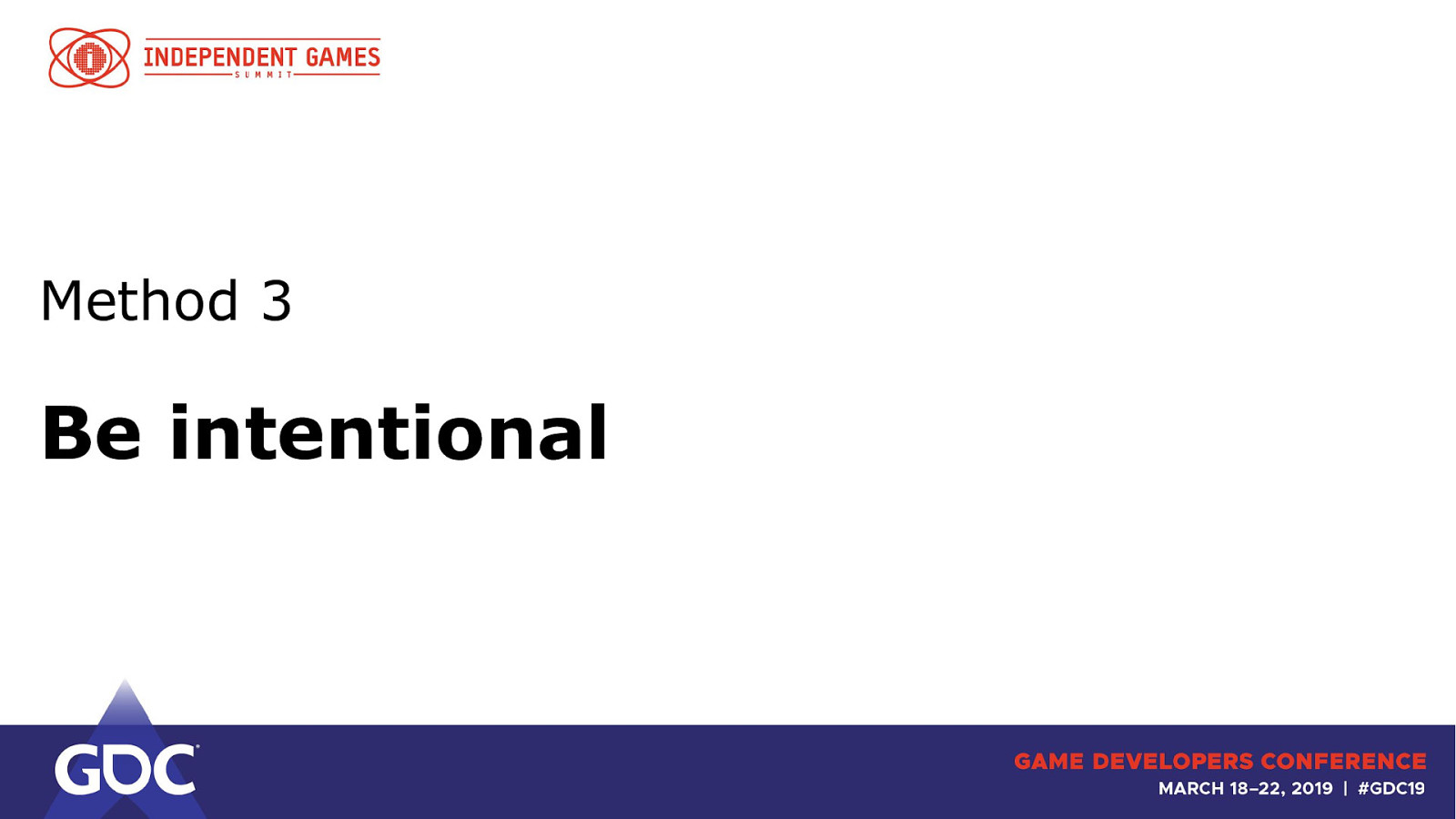
Design everything methodically and intentionally.
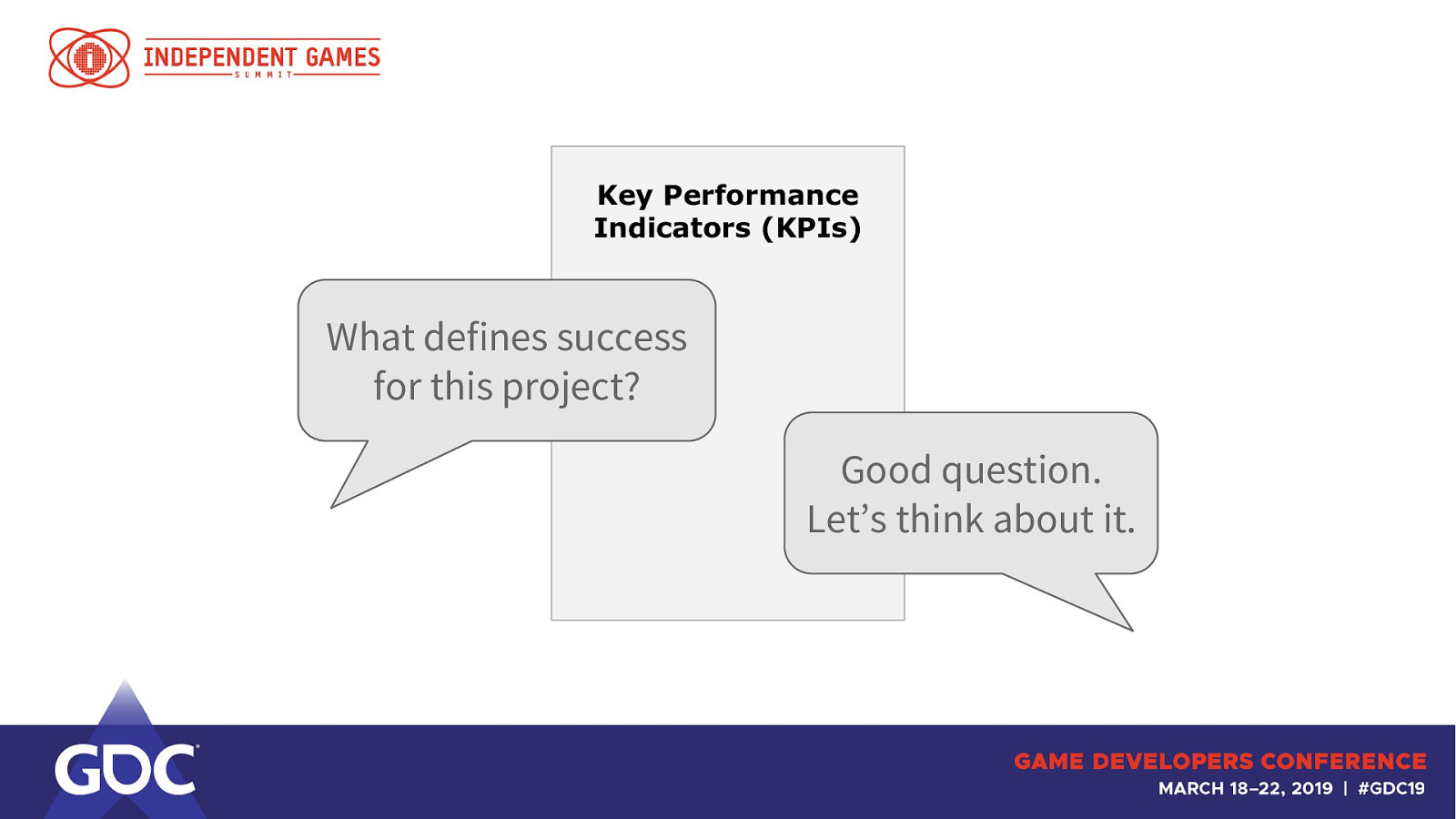
This is not just true for your game’s experience, but also your goals and overall strategy. Especially your success metrics. For example, instead of monthly active users, what are other metrics you can consider that may be more kind to players?

Addiction is unhealthy. It is unethical to incentivize people for giving your game a massive amount of their mindshare.
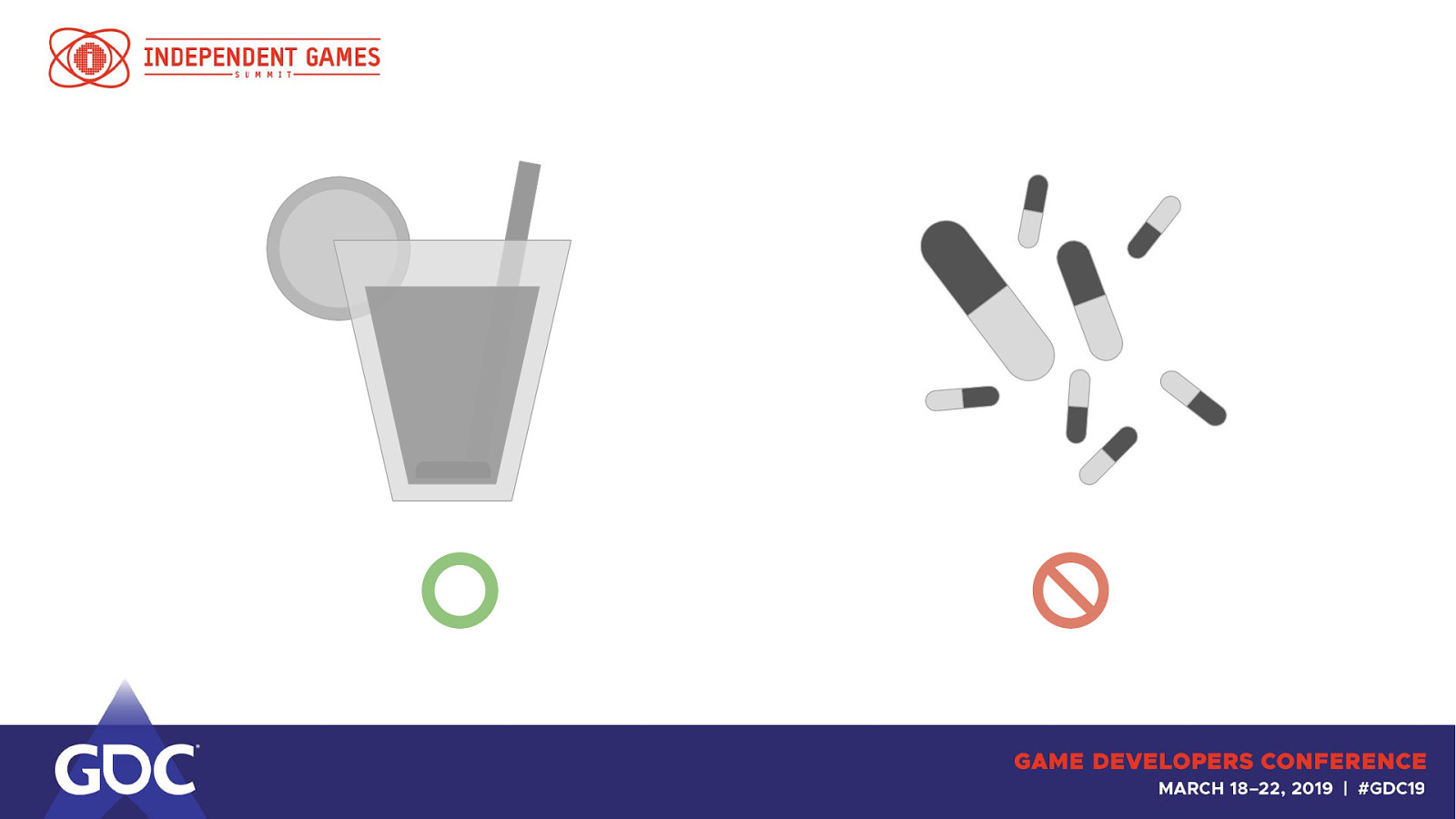
Game feel (juice) is one thing — we need it to make games feel good. Employing dark patterns is another. Your game should not be a drug.
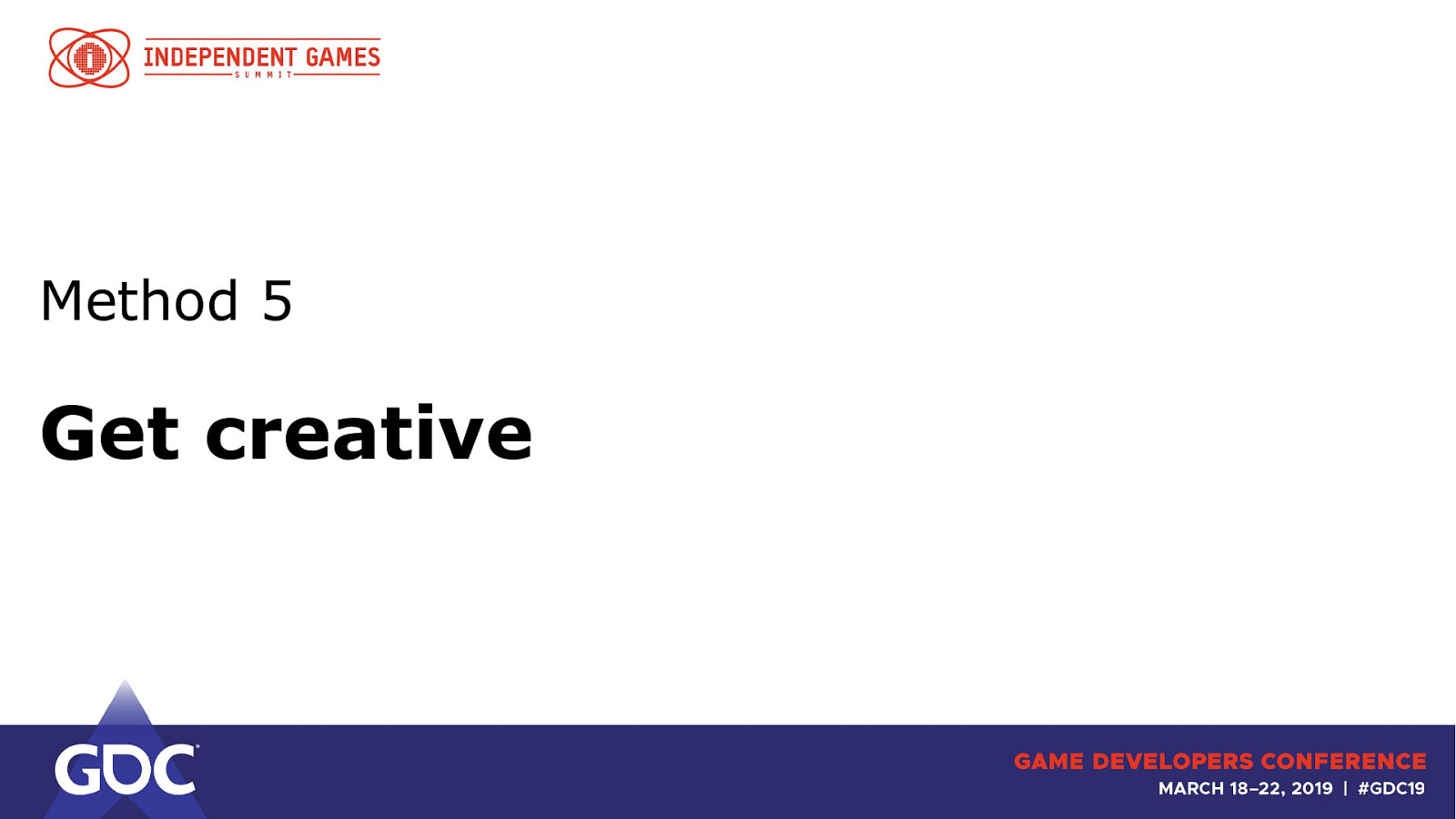
Instead of aiming for quick wins, can you find another way to be economically sustainable?
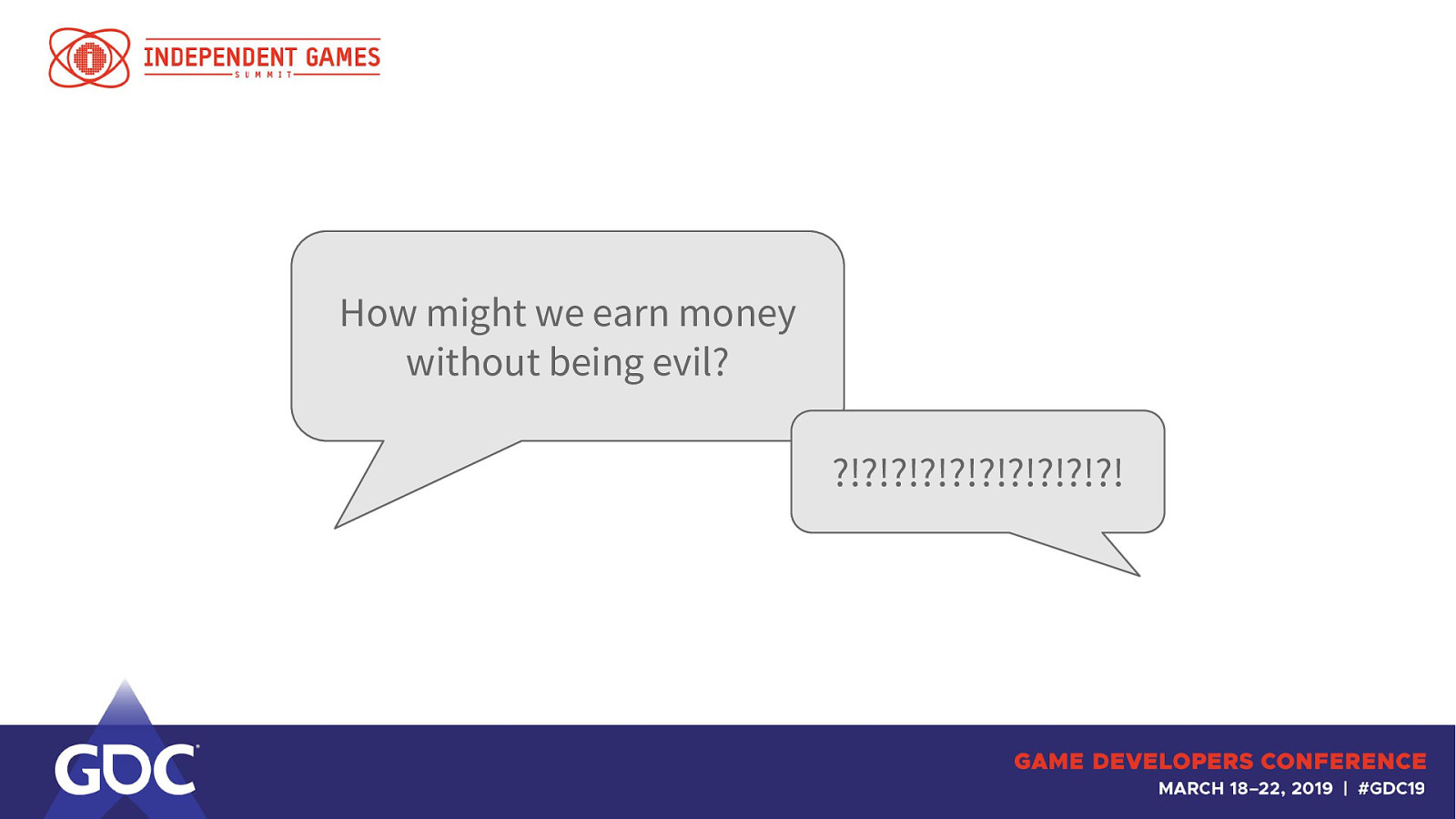
I don’t know how to do this, but I think we should all ask ourselves how we can continue to improve the industry. Rather than playing into old tropes, can we create new and less evil ways to participate in capitalism?
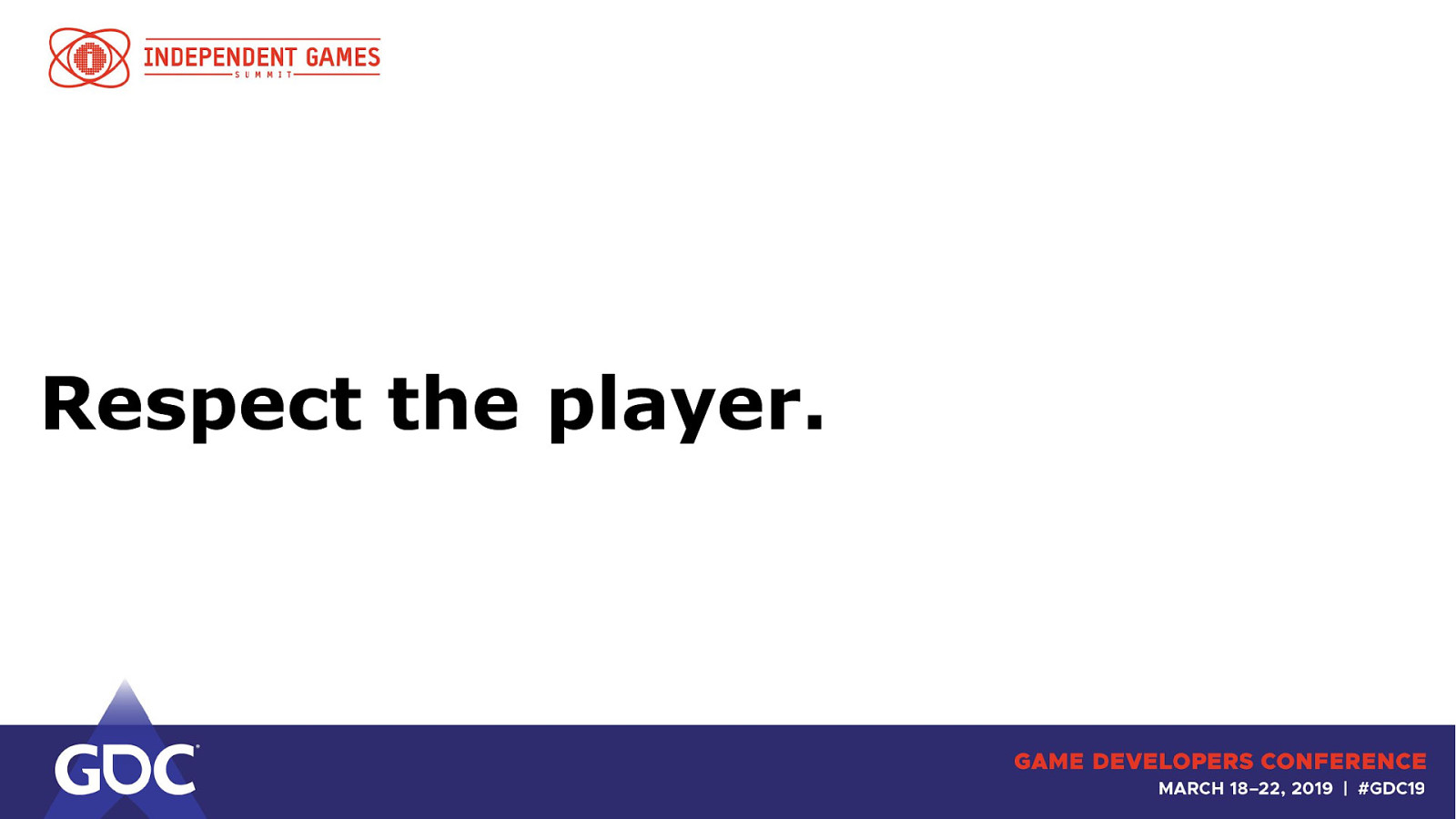
I’m excited to see us improve and become a more ethical industry. We talk about respecting the player when it comes to tutorials, about considering their intelligence and treating them like adults. How about we do the same when it comes to their time?
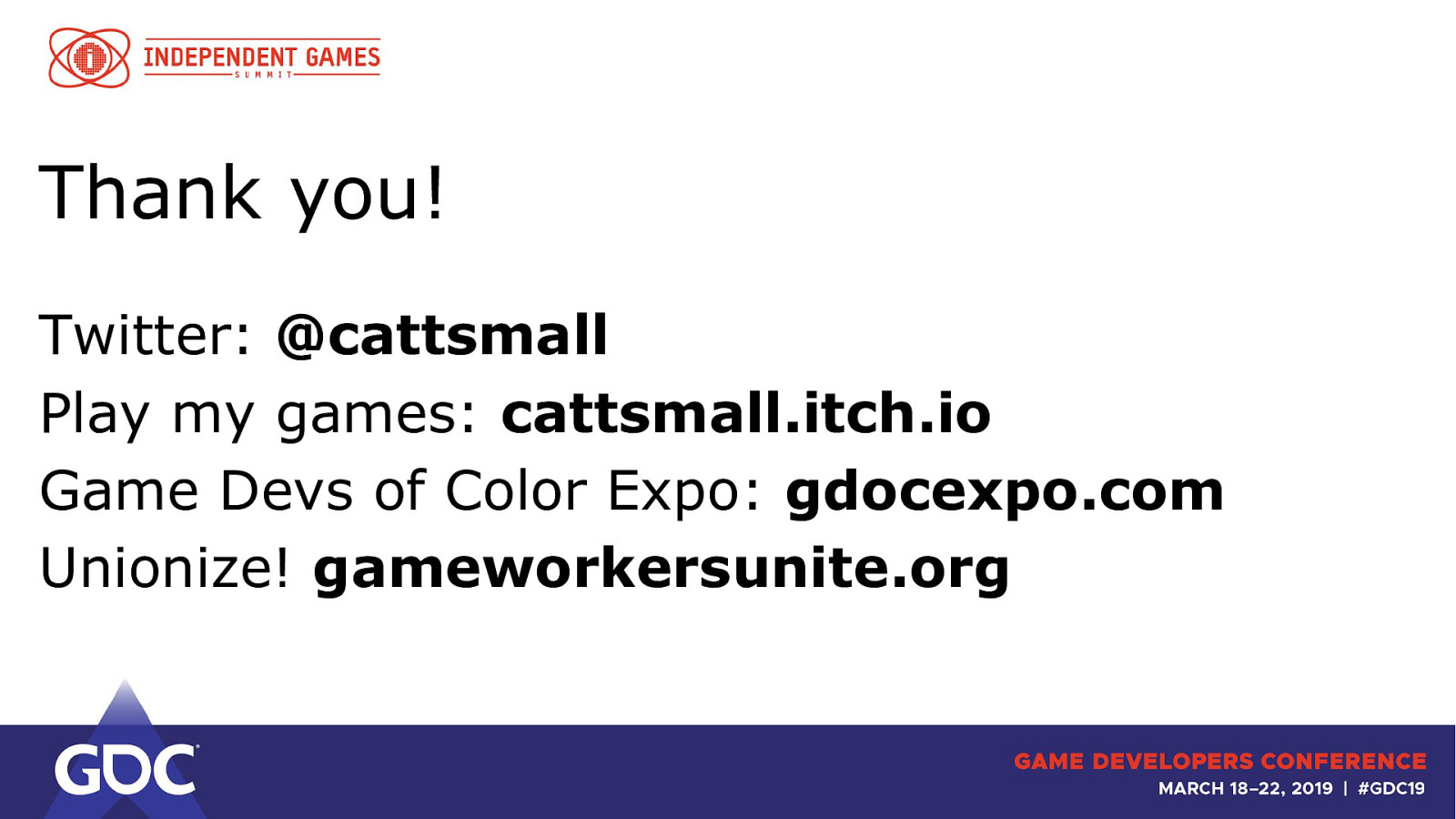
Thanks! Play my games and come to the Game Devs of Color Expo in July!